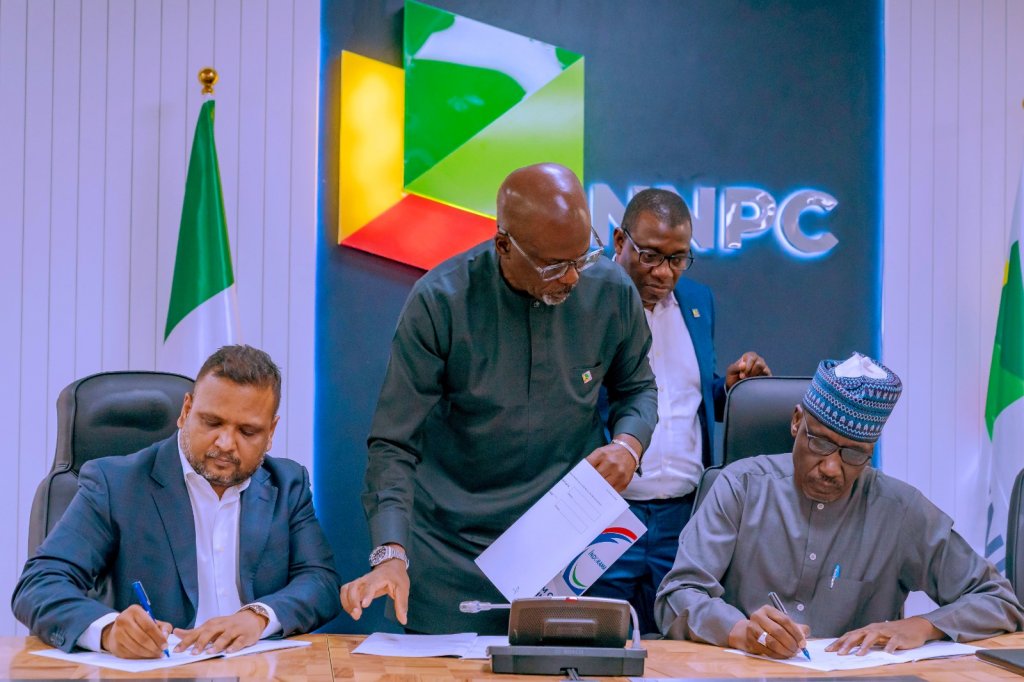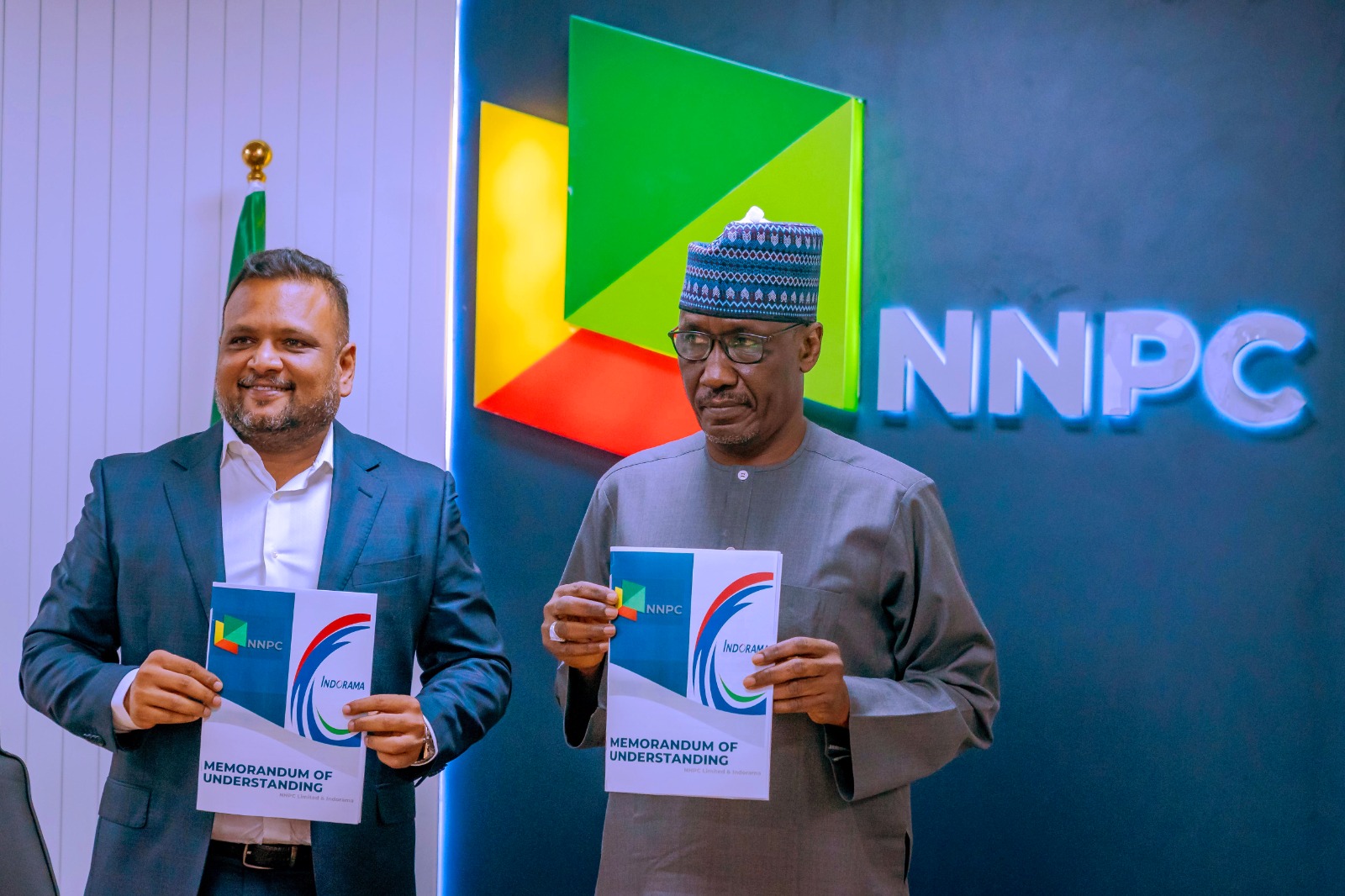Nigerian National Petroleum Company (NNPC) Limited has signed a Memorandum of Understanding (MOU) with Indorama Eleme Petrochemicals Ltd. Rivers state for the development of the country’s gas resources.
The agreement would enable both companies to explore and develop suitable opportunities within their operational interests across the hydrocarbon value chain in Nigeria.
The Group Chief Executive of NNPC Ltd., Mele Kyari, who signed the deal on behalf of his company said: “NNPC Limited is on the threshold of making value out of gas beyond any imagination.”
Kyari said as the national energy company, one of NNPC Ltd.’s roles as enshrined in article 64(i) of the Petroleum Industry Act (PIA) is to promote the use of natural gas through the development and operation of large-scale gas utilisation industries.
This role, he said, was in alignment with Nigeria’s Nigasification strategy, which is a consolidation of critical programmes embarked upon by the company to utilise natural gas and its associated liquids to be the energy source of choice, spur economic growth, free up crude oil for exports, and ultimately enable job creation.
With this project, Kyari said the NNPC was seeing the prospects of making “an annual contribution of $3billion to the nation’s gross domestic product (GDP) and a lifetime contribution of $18 billion to government revenue.”
On its part, Indorama Petrochemicals has as part of its vision to operate the largest Petrochemical Hub in Africa.
The company, which operates the world’s largest single-train Urea Plant located in Port Harcourt, said it was currently working on the expansion plans within the next six years, in the gas-based heavy manufacturing industries, including fertilizer, methanol, and petrochemicals.

The MD/CEO, Africa Indorama Energy, Manish Mundra, who signed the deal on behalf of its company said the deal was a strategic collaboration to unlock Nigeria’s upstream sector, but more importantly, to partner downstream, in order to share the value chain.”
Mundra said Nigeria’s gas reserves should position the country as one of the largest producers of urea in the world’s western hemisphere.
Key benefits of the opportunities that may be open to the country through the deal include the monetization of over 1.7 trillion cubic feet (TCF) of gas and 100 million barrels of crude oil reserves, generation of upstream lifecycle revenue of over $18billion, downstream production of about 4.8million tonnes per annum (MTPA) of products, including methanol, urea, and fertilizer to boost national food security.
Other benefits include the creation of about 55,000 direct and indirect employment opportunities, the development of a condensate refinery to boost petroleum product supply and reduce product importation, annual GDP contribution of over $3.8billion, and attraction of over $billion of foreign direct investment into the country.



